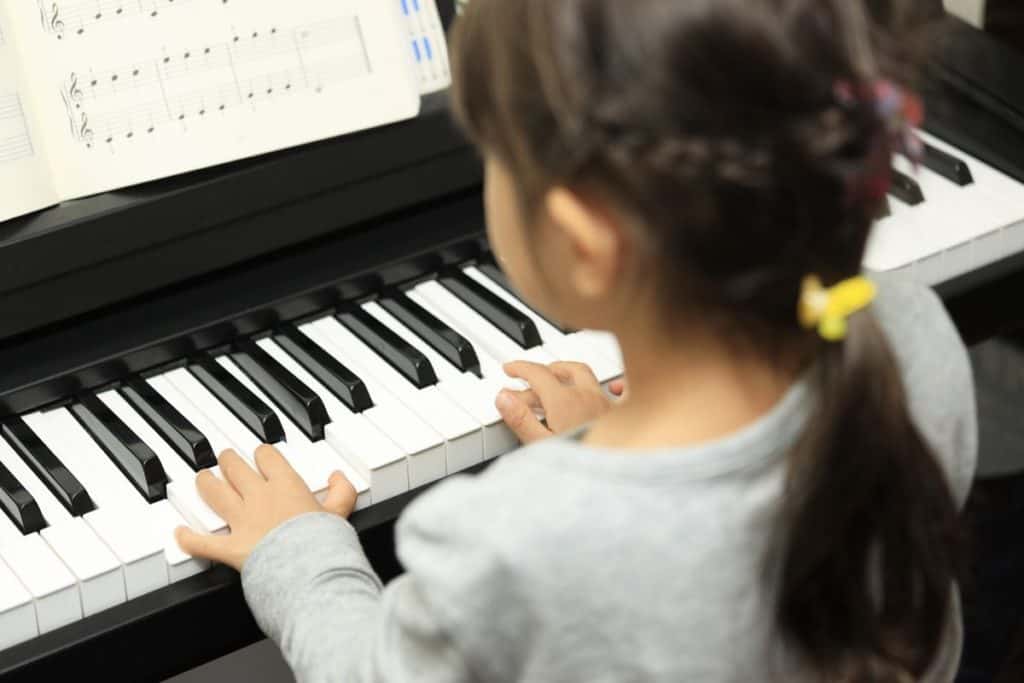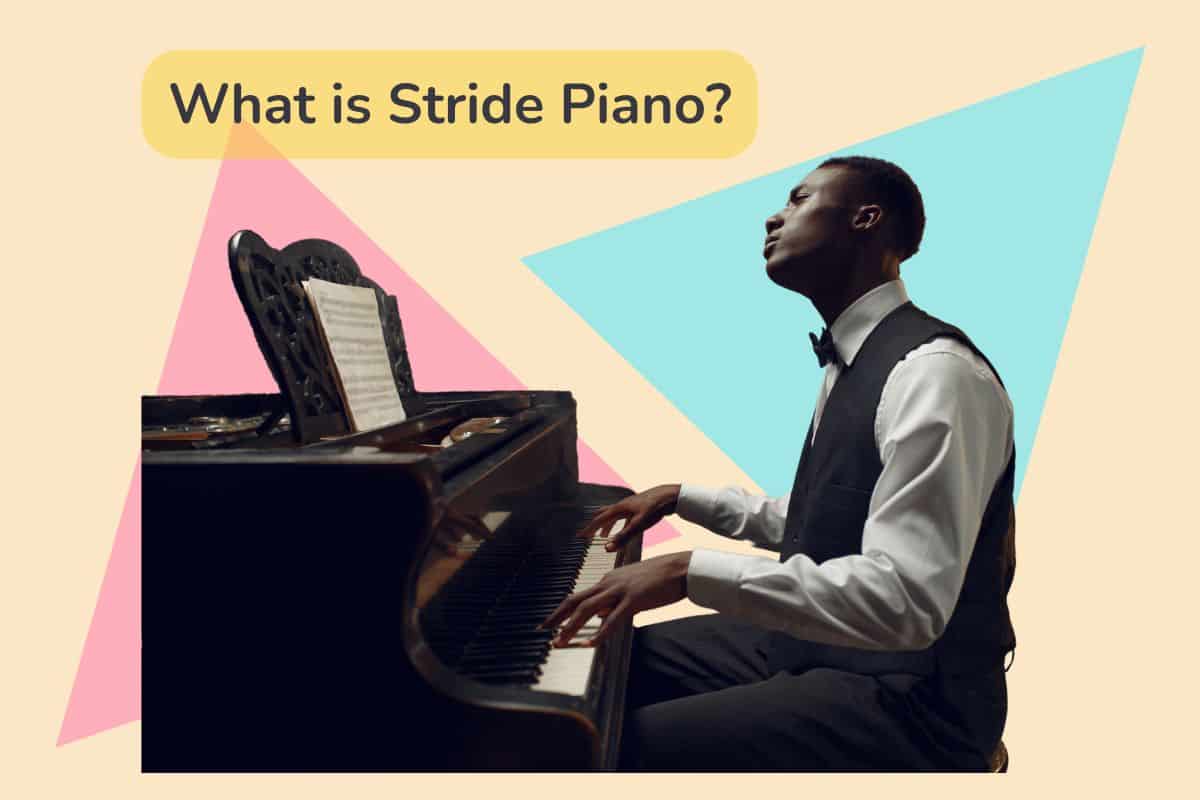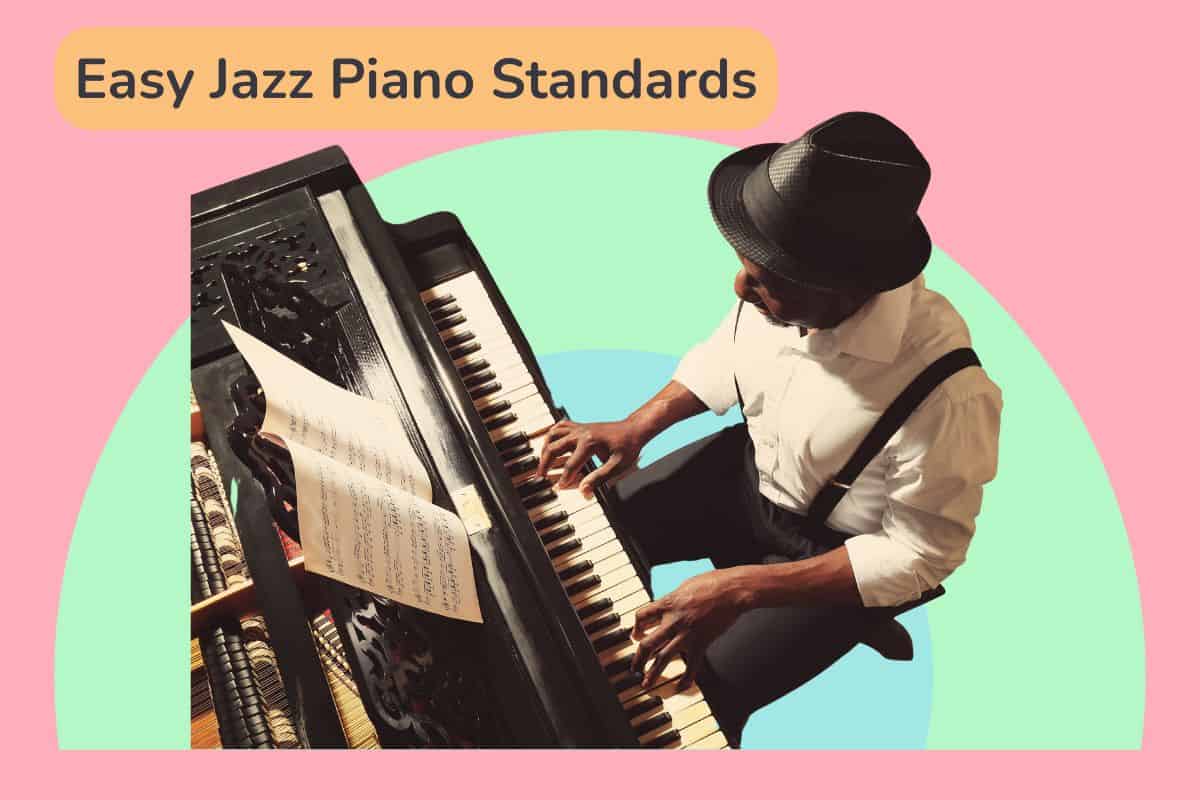For many beginners, choosing between a digital piano and an acoustic version can pose a problem. The consensus in the piano world is that acoustic models have superior sound. Still, the cost and practicality of owning one mean that many newbies can’t ignore the digital variants.

So, are digital pianos good for beginners? Many budding pianists will find digital pianos with weighted keys an excellent companion in their early days for a wide range of reasons, including affordability and convenience. Once you’ve mastered the basics on a digital piano, you can gradually make the transition to an acoustic version.
The rest of this article will explain why digital pianos are an excellent choice for beginners, and the factors to consider when choosing one. We’ll also provide some recommendations on the top digital pianos to choose from today.
Acoustic vs. Digital: Why Digital Pianos Win for Beginners
An acoustic piano is an elaborate instrument featuring hammers and steel strings contained in a wooden exterior. The piano keys are connected to the hammers so that when pressed, the hammer can strike the strings and produce the sound. The two main acoustic piano options are the upright piano and the grand piano.
A digital piano is an adaptation of the acoustic piano. The sound produced when you strike a key is a high-quality recording taken from acoustic pianos—and sometimes, other instruments. Think of these as the modern and more compact versions of the acoustic piano. The main types include the upright digital piano, the digital grand piano (baby grand piano), and the portable or stage digital piano.
Why are Digital Pianos Good for Beginners?
A lot of instructors recommend that beginners use a digital piano for a few reasons. Here are some reasons why they recommend digital over acoustic:
They Are Affordable
An average acoustic piano will cost more than a digital option. Not many beginners can spend thousands of dollars on their first piano.
Digital Pianos Are Low-maintenance
After you’ve shelled out a steep price for your acoustic piano, the spending doesn’t end there. You’ll still need to spend a few hundred dollars yearly on maintenance and tuning. A digital piano saves you from these extra costs as a beginner.
They Offer More Practicality
While an acoustic piano could lead to noise complaints from the neighbors, a digital piano typically comes with volume moderation functions. This allows you to practice at your own convenience. Some models also come with headphone jacks, ensuring you don’t have to disturb people in the same room during your sessions.
Additionally, you can find a digital piano that will fit into virtually any space you have mapped out. You don’t get such flexibility with acoustic pianos, which typically come in large sizes. The smaller nature of digital pianos also means you can carry your keyboard with you when going for one-on-one lessons with your instructor.
Factors to Consider When Choosing a Digital Piano as a Beginner
After you’ve decided to choose a digital piano, you still can’t just go with the first model you find. There are a few crucial points you need to keep in mind while you shop around, especially if you’d like to play an acoustic piano as you progress.
Consider the Response
If you intend to take your learning to an acoustic piano in the future, you need to consider the response from your digital piano. The harder you hit the keys on an acoustic piano, the louder the sound. Some digital keyboards are able to replicate this response while others won’t. If you choose models in the latter category, you may find it a bit more challenging to make the transition to and from an acoustic piano.
Many instructors will tell you to focus on learning the basics first before worrying about the response, but it is still something for you to consider.
Choose Weighted Keys
Some digital pianos come with weighted keys, while others don’t. As a beginner, you need to choose a model that has weighted keys as it is the only way for you to feel the same dynamics on an acoustic piano. The resistance from weighted keys will also help improve your technique while building your finger strength.
However, there are two downsides to this. First, pianos with weighted keys are heavier. Secondly, they tend to cost a bit more than the non-weighted variants.
Pay Attention to the Number of Keys
The number of keys on a digital piano can be 61, 76, or 88. Your unique needs should determine the option you go with. A 61-key digital piano is a decent option for many beginners as it allows adequate practice for a suitable range of notes and is an excellent fit in small spaces. However, if you intend to play classical music, you will need a digital piano with the complete 88-key set.
How is the Feel?
The feel of the keys on a piano can affect the quality of the sound generated. If the keys are non-weighted and come in slippery texture, you will find it difficult to apply the right amount of pressure on the keys. You need to ensure your chosen digital piano offers a feel that copies an acoustic piano as closely as possible.
How Much Are You Willing to Spend?
Since the features on digital pianos vary, the prices will also differ. You need to carefully weigh the costs of the keyboard you choose against the important acoustic-related features such as weighted keys, and more.
If you don’t intend to play acoustic pianos, you can choose cheaper options. Also, you don’t need to buy a high-end digital piano in your early days. You can learn on a functional model, and splurge on a costlier model in the future.
Consider the Aesthetics
The build and design of your digital piano should be top on your list of considerations.
- How much space do you have for the piano?
- What piano color will blend into the theme of your interior décor?
- Do you want an option you can easily move around?
These are some of the questions you should answer to choose a piano with the perfect build and design for your situation.
Extra Features
The additional features on a digital piano can ultimately help you make your decision. Some of them come with headphone jacks, USB connection, an equalizer, a microphone port, a range of other instrument sounds, and more. When you’ve noted a few digital pianos to choose from, the number of extra features (relevant to you) can help you whittle down the list.
Top Digital Piano Models to Consider as a Beginner
There are many digital piano options to choose from as a beginner. To guide you, we have handpicked a few you can trust to deliver. They include the following, which can be found on Amazon:
- Alesis Recital
- Yamaha DGX660B
- Casio PX-770 BK Privia
- Yamaha P125
- Casio Privia PX-160BK
- Yamaha YDP103 Arius
- LAGRIMA Digital Piano
Go over each of these and pick the one that appeals to you the most. If you can’t decide, read reviews online or enlist the help of your instructor (if you are working with one).
Conclusion
As a beginner, a digital piano allows you to get grounded in the basics of the art. It will help you to stay focused on learning your notes and regularly practicing without worrying about things such as maintenance, tuning, or attracting a noise complaint from your neighbors.
If you choose the right digital piano, you can replicate the feel and sound of an acoustic piano very closely. Thus, you won’t have any issues with making the transition from a digital piano to an acoustic version down the line.



